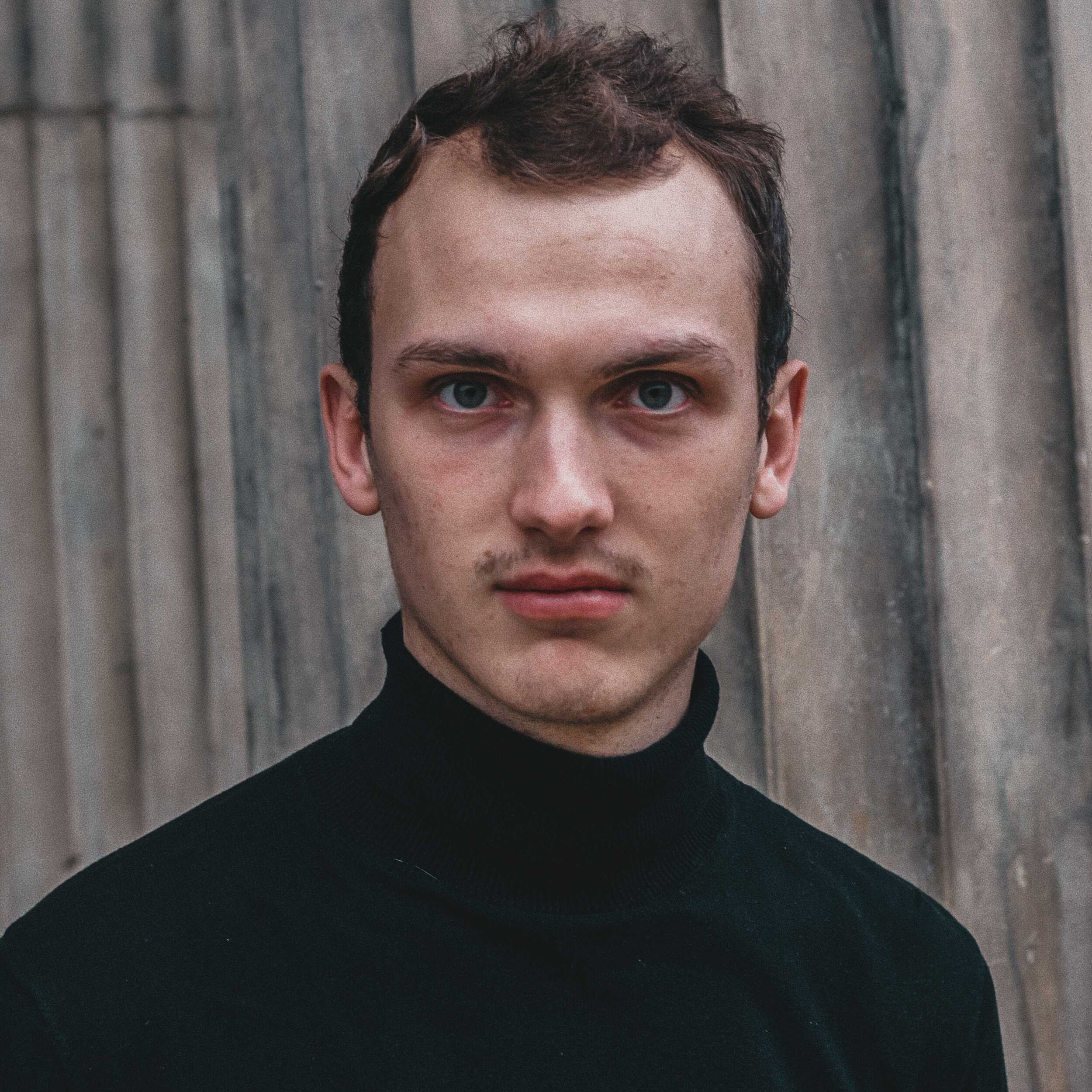SCHALLFRONT presents
THOMAS PFAFFINGER
Thomas Pfaffinger is a Hannover-based multidisciplinary artist whose work deals with the manipulation of sound into aesthetic structures. Besides music, he is also active in the field of sculpture, painting, performance, and film. Since 2018 he has been studying the at the HMTMH under the guidance of Jens Bjørn-Larsen.
Pfaffinger was given the chance to gain extensive musical experience in performing at concert series such as Musica Viva by the Bavarian Radio. There he worked, under Peter Eötvös, on Stockhausen's Hymnen Region 3. Together with the Junge Deutsche Philharmonie and Jörg Widmann, he performed the large-scale “Messe”. Pfaffinger has also performed with conductors such as Daniel Harding, Phillipe Jordan, and Oksana Lyniv. Additionally the artist worked on theatre- and CD-productions with the Orchesterakademie of the Bavarian State Orchestra and the Ensemble of the Bavarian State Opera. During his studies in Hannover he focused mainly on contemporary instrumental as well as experimental electronic music. 2020 his piece Shifts for the tuba and live electronics premiered, being performed Marijana Janevska. 2021 he worked on several other works with Gordon Williamson, Sean Quinn, Ole Hübner, Ryan Carraher, and Kaan Bulak. The artist is part of the Ensemble Zeitstoff. His upcoming performances include Hidalgo Festival Munich, Klangrausch Weimar, a concert tour through Germany and Austria with Anne Keckes and Teresa Emilia Raff.
© Photo by Yulia Mustaeva
INTERVIEW
SCHALLFRONT: Thomas, can you tell us how you came to be involved in Neue Musik?
THOMAS PFAFFINGER: I think there was no specific event or occurrence that lead me to the Neue Musik scene… I remember being always impressed by complex music – first I played in orchestras and then, eventually, I started to explore new sounds on my own instrument, the tuba. I kept focusing on that, and now I‘m here.
Your artistic work is characterised by a multidisciplinary approach. Besides music, you are active in the fields of painting, sculpture, performance, and stage design, just to name a few. Do you understand each artistic field as a different form of expression to certain questions? If so, in which way?
THOMAS PFAFFINGER: Somehow I don’t really connect the different disciplines I’m active in with each other. My work within the field of film for example are stylistically so far away of my paintings. I think every field has its own potential and also a different transfer to the audience. I love to play and go along with that.
All of the aforementioned disciplines that you are active in have their own rules and history. Do you incorporate them into your work as an element of mediated self-reflection? Or do you believe that there is also artistic potential in thinking outside of these given boxes?
THOMAS PFAFFINGER: I don‘t really follow any rules. I would rather say that I use materials to get a result that I like - whether it is to put a saxophone mouthpiece on a tuba or to mix oil with acrylic paint - I‘m totally fine with not doing what is commonly done or expected.
The theme of our concert series is “reverie(s)”. This relates to a certain dreamy characteristic, how does this play a role in your music?
THOMAS PFAFFINGER: I would actually describe my music as a surreal dystopian dream - there are really long stretched passages where you can lose yourself in the sound, as well as dark rhythmical sounds which sound to me like how you would imagine a sleep paralysis … my music can’t be described as a super happy dream – let’s put it this way.
As we have experienced in the last years with our extraordinary situation, art can often be used as a pleasant escape from reality. On the other hand, art can be used as a medium to bring reality into a more understandable and relatable form. The analysis of the dream itself can be used as a way of understanding and processing our struggles in a safe and non-real environment. Do you use either of these methods in your music and how might they be used?
THOMAS PFAFFINGER: My music may sound like a dream or nightmare of the reality of my instrument… I understand my solo set as a way to show everything that’s possible in a room of its own.
How does interaction with artists and listeners, either directly through collaboration, through conversation, or by attending concerts influence you as an artist?
THOMAS PFAFFINGER: I am always curious about what the listeners think and how they see my work – but that solely remains a curiosity. Other people’s opinion don‘t influence my work or convinced me to change what I’ve done in the aftermath. I think as an artist you have to both believe in and stay loyal to your work… also to do it for the art’s sake, not for the people.
What is your vision for your artistic development?
THOMAS PFAFFINGER: I just wanna keep playing and doing the things I‘m interested in. That’s a feeling, I don’t want to lose.

